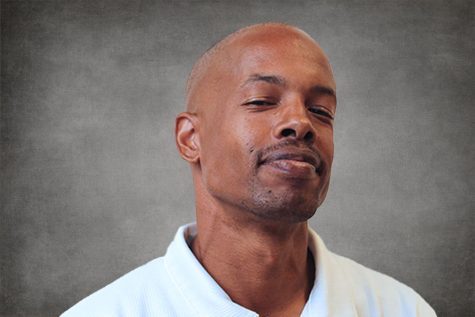Academic Senate votes to eliminate degree requirements
Library studies, health and physical education, science lab no longer needed for associate degree
Dec 15, 2016
The decision to remove four educational requirements from the checklist students are obligated to complete prior to earning an associate degree from CCC has passed in a near-unanimous vote by the Academic Senate Dec. 16 in GE-305.
Many educators at Contra Costa College that serve on the senate were morally opposed to the decision, and voiced that disapproval, but felt compelled to vote the will of their individual constituencies to remove Health Education, Physical Education , Library Studies and Science Lab from the requirement list.
The changes, expected to be implemented for the fall 2017 semester, are primarily to assist Career Technical Education (CTE) student graduation rates.
“It’s not just CTE, this affects all students getting local degrees,” Academic Senate President Beth Goehring said.
Academic Senate vice president Rick Ramos said, “My students said get rid of them because it’s holding them back from getting local degrees.”
Goehring reminded senate members that they represent the faculty and that members shouldn’t cast votes based on personal opinions. “We have to report out on what people asked us to do,” She said. Goehring asked the senate to voice personal opinions about the changes, despite how the divisions that the 7 members in attendance represented may have voted.
Early childhood education department Chairperson Intisar Shareef made her opposition to the changes clear.
“People are looking for what’s expeditious — how to complete goals with the least amount of challenges,” Shareef said. “Those are the times we live in. Everything is being done so students can get through quicker and I think we are seeing the results of it — they are not very well prepared.”
Before reaching the senate, the four departments on campus, Liberal Arts (LA), Natural and Social Applied Sciences (NSAS), Student Services (SS) and Library Health Vocational Education and Athletics (LAVA) voted individually to keep or remove the courses.
For the LAVA department, 52 percent of the votes tallied were for keeping Health Ed and Physical Education courses while 60 percent voted to keep Library Studies.
Only 40 percent of voters from the LAVA division elected to keep the science labs. NSAS also posted low voting percentages toward keeping the four courses.
Members of the department totaled 16 percent toward keeping and only 25 percent to keep Physical Education.
Library studies earned a 25 percent in favor vote from its department and even the science lab couldn’t get a positive percentage from the department as only 50 percent of its members voted to keep science labs as a graduation requirement.
“I’m very disturbed to see that people think the actual practice of science is not important, it makes me feel bad going into Christmas,” Distance Education Chair and CTE representative Katherine Krolikowski said. “The essence of science is doing. What if we asked English teachers to teach English without allowing the students to write? — It’s the same thing.”
Music department Chairperson Wayne Organ said he couldn’t imagine only teaching Music from a book without students actually having a chance to use the instruments.
The liberal arts department also posted low numbers in reference to keeping the courses. Only 23 percent of members within the department voted to keep Physical Education or Library Studies with 30 percent voting to keep Health Ed. The only course that the liberal arts department voted overwhelmingly in favor of keeping was the science lab at 55 percent.
Only two departments voted to keep any of the courses up for removal, LAVA, which voted to keep Library Studies and Liberal Arts, which supported retaining the science lab requirement.
Student Services supported keeping Physical Education, Library Studies, and the Science Labs with votes of 100 percent across three categories. The only course that did not receive over 50 percent support was Health Ed — only 25 percent of student services voters decided in favor of keeping the courses.
In total, campus faculty members voted to remove all four of the courses by substantial percentages with the vote to discard Library Studies only passing by one percentage point, 51 to 49 percent.
After a breakdown of the departmental vote and the representatives opportunity to voice concerns or questions regarding the decision, Goehring readied the eight senate members in attendance to determine the future of the courses.
Goehring reminded senate members, some who were openly frustrated or displeased with the direction of action, of the importance of properly representing the will of their constituency despite moral or personal objections.
“Personally, I voted to keep everything because I think we are slowly degrading the value of a degree. When the degree becomes the be-all end-all you feel like if you can just get that degree then you’re someplace,” Organ said. “People get less experience so they are less prepared to move on to the next stage.”
The courses removed from the requirement list are still available for students to take if they choose despite all senate members electing to remove the courses.
The only non-removal vote was by LAVA division representative Judy Flum who chose to abstain.
“I don’t see it as the bar being lowered, I see it as giving students more choices,” Dean of student services Vicki Ferguson said. “I look at it as a chance for students not to be handcuffed by classes they don’t have to take in order to get a degree.”


